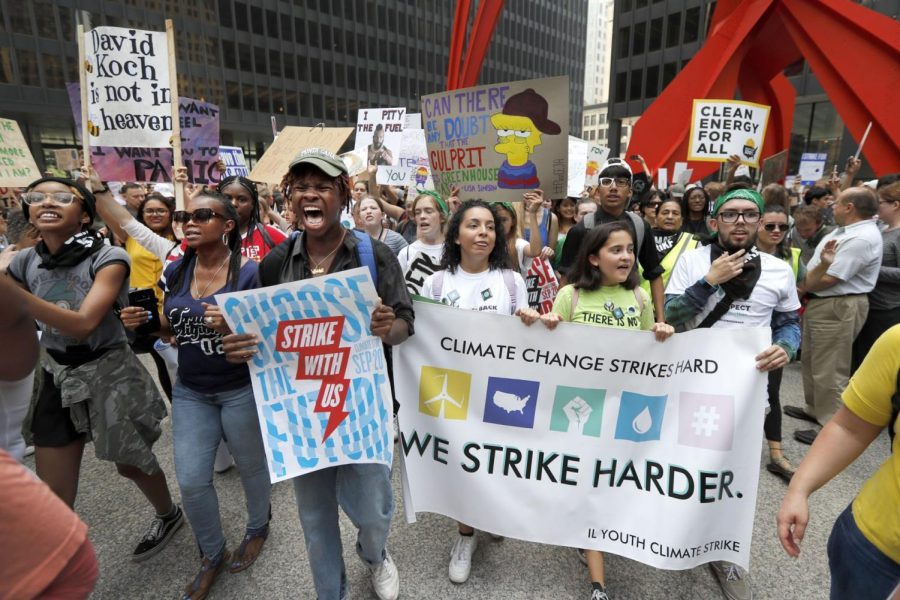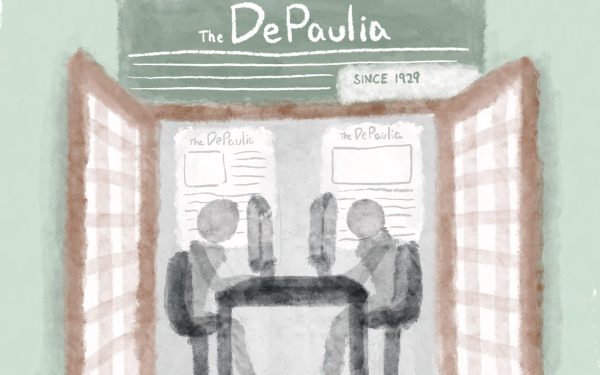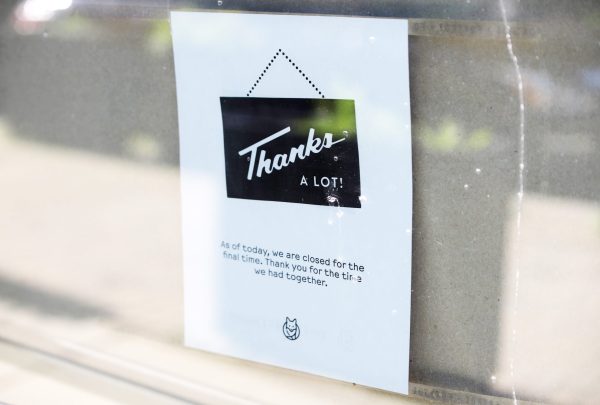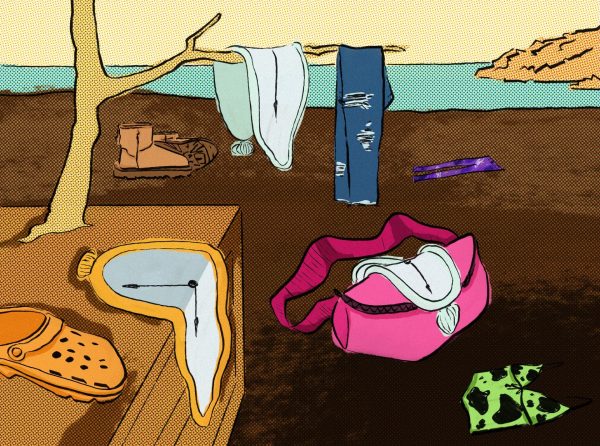Op-ed: Why sustainability must be central to DePaul’s new mission
Protesters rally on the Federal Plaza inside the Loop during a global climate change march Friday, Sept. 20, 2019 in Chicago.
When someone asks me what makes DePaul unique, the answer I give is always the same. It’s not our academic programs, our mascot DIBS, or even our dual campuses that I reply.
While those make DePaul stand out, what makes DePaul unique is our mission. Our Catholic, Vincentian and Urban identity is in everything we do, and one need look no further than our strategic plan, “Grounded in Mission,” to see that these three identities guide our actions.
Yet while some of the aspects of these identities, such as a commitment towards serving the poor and our communities, are apparent in what DePaul does today; what often is overlooked, but is integral and woven into each of these identities is a commitment to sustainability.
As DePaul’s Division of Mission and Ministry, under the guidance of Rev. Guillermo Campuzano, C.M., better known as Father Memo, prepares to reimagine the university’s mission statement, it is imperative that sustainability be a fundamental component of it.
When examining our Catholic identity, it is clear that sustainable living is central to a Catholic life. Pope Francis, in his second encyclical, Laudato si’, emphasizes the need for not just a transformation of the environmental conditions of our world, and how this ultimately ties to humankind’s purpose, but a cultural transformation. He argues that social issues cannot be decontextualized from the environment.
Whether it be the pressing COVID-19 crisis, which has disproportionally affected marginalized communities, or on the global sense, people who are victims of present-day colonialism, or the growing attention on under-resourced Chicago communities on the South and West sides, we cannot separate the environment from the hardships they face. Likewise, the communities that we serve cannot be removed from the environment.
Pope Francis makes it incredibly clear that the religious calling of Catholics involves a stewardship towards the Earth. This land we inhabit is not ours. We are here to maintain and better it, understanding that the communities we exist in are not composed of just those present here and now, but those who will embody the community in the future. The greatest love we can give is to our community, and the greatest way to give to our community is to protect that which gives life to all of our communities, the one Earth we share.
As Vincentians, we take the lessons of Catholicism, and combine them with the works of Saint Vincent de Paul and the Congregation of the Mission. Louise de Marillac, along with Vincent, worked tirelessly to serve the sick and poor, forming the Daughters of Charity. And while their works may perhaps seem unrelated to that of sustainability, let us heed the message of Pope Francis and remember that we cannot disembed the social issues of inadequate healthcare and poverty that they addressed from the environment.
True service to the poor requires a recognition of the environments which created the poverty, and as a Vincentian institution dedicated to grounding what we do in mission, sustainability must be at our core.
Let us not also forget that sustainability means more than just “being green.” Being sustainable entails an ethical and moral character. It means sourcing what we consume from suppliers who treat their laborers with dignity and love, when we cannot limit consumption outright. It means treating our workers with respect, including those not directly contracted by DePaul. It means an outlook which sees value in everything for its sheer existence, not because it has worth on “the market.”
Turning to our identity as an Urban institution, sustainability also finds itself rooted here. Chicago, the city we call our home and campus, also aspires to be sustainable. Chicago’s motto is to be a “city in a garden” — a city that is not just a mess of clunky buildings, worn concrete and towering steel structures, but a place that values and appreciates the natural.
Not only must we, as an Urban institution, seek to protect the land which we inhabit but recognize that communities existed before us on this land. This means we must accept that our campuses occupy the Indigenous lands of the Council of the Three Fires and others. This was their land and community before we occupied it.
Our Urban identity also calls for us to stop gentrification, which displaces and creates further hardships for many who have called this land home for generations. DePaul, through our past participation with the Lincoln Park Conservation Association, has unfortunately had a hand in gentrification right here in Lincoln Park, and we must do better.
As we continue to grow as an institution and seek to refine our mission, we must not forget what our identities tell us. They speak clearly that a commitment to sustainability — which we have regrettably reneged to do in the past — is a must.
DePaul is only as strong as our mission, and our mission, without the love and stewardship offered by sustainability, can only go so far. I encourage my friends in the Division of Mission and Ministry to take this to heart and engage with the interplay between our core identities as a Catholic, Vincentian and Urban institution and our current world to see that sustainability nestles itself in each of them, and thus in our mission.
If you want to share your own thoughts and be part of the reinvention of the mission, I encourage you to take part in the Seeds of the Mission campaign being run by the Division of Mission and Ministry, where you can share your story of the Vincentian mission.

















